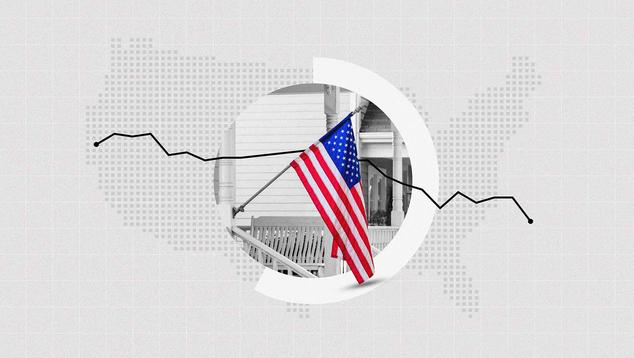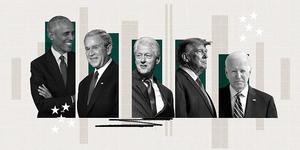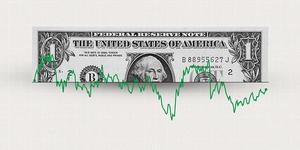WASHINGTON, D.C. — A record-low 58% of U.S. adults say they are “extremely” (41%) or “very” (17%) proud to be an American, down nine percentage points from last year and five points below the prior low from 2020. The 41% who are “extremely proud” is not statistically different from prior lows of 38% in 2022 and 39% in 2023, indicating most of the change this year is attributable to a decline in the percentage who are “very proud.”
These findings are from a June 2-19 Gallup poll conducted before the June 21 U.S. military action in Iran. It is unknown whether Americans’ national pride has been affected by that action.
In addition to the 58% of U.S. adults who are extremely or very proud, 19% say they are “moderately” proud, 11% “only a little” proud and 9% “not at all” proud. The combined 20% on the lower end of the pride scale essentially ties the record 21% measured in 2020. Until 2018, less than 10% of U.S. adults had consistently said they had little or no national pride.
In January 2001, when Gallup first asked Americans how proud they were, 87% said they were extremely or very proud. After the 9/11 terrorist attacks, the figure increased to 90%, and it held at that level or higher between 2002 and 2004.
The percentage who were extremely or very proud dropped to 83% in 2005, but it did not vary significantly from that mark for the next 11 years. In 2017, a new low of 75% said they were proud, and national pride has deteriorated further since then.
Pride Tumbles Among Democrats; Independents Also at a New Low
Democrats are mostly responsible for the drop in U.S. pride this year, with 36% saying they are extremely or very proud, down from 62% a year ago. This is only the second time Democrats’ pride has fallen below the majority level, along with a 42% reading in 2020, the last year of the first Trump administration. That poll was conducted during the early stages of the COVID-19 pandemic and shortly after the murder of George Floyd by Minneapolis police officers.
Political independents’ pride has also reached a low point, with 53% expressing a great deal of pride, down seven points from last year, which had been the previous low for this group. Independents’ pride has been declining since the early 2000s, dropping below 80% for the first time in 2005, then below 70% in 2019 and below 60% this year.
Republicans' level of national pride has been much steadier, typically registering above 90%, including 92% this year, up from 85% in 2024. The only years in which fewer than nine in 10 Republicans were proud were 2016 and 2020 through 2024. All but 2020 were when a Democratic president was in office.
Younger Generations Less Proud Than Older Americans
There are clear generational differences in American pride, with each new generation significantly less likely than the previous one to say they are extremely or very proud to be an American.
This finding is based on the average level of pride expressed by the various generational groups across five 5-year periods since 2001. The resulting sample sizes allow for robust comparisons at each time period between groups as well as evaluation of changes over time.
The youngest two generations, millennials (born between 1980 and 1996) and Generation Z (born after 1996), are the most distinct. From 2021 to 2025, less than half (41%) of adults who belong to Generation Z have been extremely or very proud to be Americans, compared with 58% of millennials. The rate increases to 71% of Generation X, 75% of the baby boom generation and 83% of the Silent Generation.
Despite their greater expression of pride, all generations from millennials through the Silent Generation have shown declines of 10 or more points in the percentages extremely or very proud since 2001-2005. Most of that change has occurred since 2016.
As might be expected given the partisan trends, Democrats are largely responsible for declining U.S. pride within each generation. Comparing data from the past 10 years with the prior 15 years, pride among Democrats in each birth cohort has declined by at least 10 points, with larger drops of 21 points for Gen X Democrats and 32 points for millennial Democrats.
In the more recent period, an average of 44% of millennial Democrats and 56% of Gen X Democrats are extremely or very proud to be Americans. But those figures are still well above the 24% of Gen Z Democrats who are proud.
Notably, more Gen Z Democrats say they have little or no pride in being an American (32%) than say they are extremely or very proud.
Political independents in each generation have shown modest drops in national pride over time, ranging from four to 10 points.
Republicans in the older generations have essentially the same high degree of pride today as they did in the earlier part of this century. Gen Z Republicans are far less proud than their older fellow Republicans; however, they are still much more likely to be proud than Gen Z Democrats and independents.
Implications
At the beginning of the 21st century, U.S. adults were nearly unanimous in saying they were extremely or very proud to be Americans. But that national unity has eroded over the past 25 years due to a combination of political and generational changes. Democrats today are much less likely than in the past to express pride in their country; in fact, their national pride has hit a new low. Additionally, Generation Z and millennials are much less proud of their country than their elders are.
These changes have occurred mostly over the past decade, and have done so amid greater pessimism about the economic prospects for young people, widespread dissatisfaction with the state of the nation, greater ideological divides between the parties, unfavorable images of both parties, and intense partisan rancor during the Trump and Biden administrations.
Stay up to date with the latest insights by following @Gallup on X and on Instagram.
Learn more about how the Gallup Poll Social Series works.
View complete question responses and trends (PDF download).





